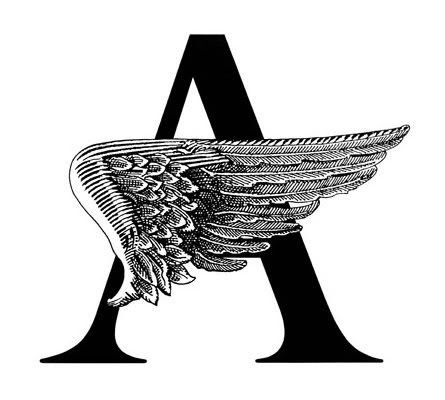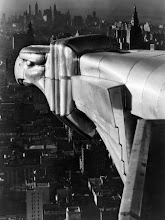The role of Hedda Tesman has been invariably compared to that of Hamlet (the female version, as it were), a collation that comments on the challenging nature of the part. Kate Burton, Annette Bening, and Maggie Smith have been just a few of the notables who’ve fired from Hedda’s pistols. Now it’s Ms. Parker’s turn.
In the Roundabout Theatre Company’s revival this season, Mary-Louise Parker assumes the Dionysian persona of the oppressed woman in an ostensibly “modernized” version of Ibsen’s work. Why exactly it’s modern is a fact that has evaded me, but perhaps the gritty new translation appeals more to the contemporary audience that values instant gratification amongst all else. In spite of the initial skepticism of the revival, once I discovered Ms. Parker, who lights up my television screen in her series “Weeds”, was playing the trigger-happy damsel, I leapt for joy. I believed that she would bring to the role the combination of cynicism and grace she’s known for; a perfect match for Hedda. I couldn’t wait to hear her utter the beautiful lines “…then Ejlert Løvborg will come…with vine-leaves in his hair.” Instead, though, at the end of the second act I hear “Ejlert Løvborg will be mine again!”
Did I hear right? “Ejlert Løvborg will be mine again”? Did Ibsen ever write for “The Guiding Light”? I should certainly expect not. Christopher Shinn’s translation leaves a lot to be desired; it’s understandable for a work as old as “Hedda” to undergo revisions that would render it a little more comprehensive to a modern audience, but stripping it of any depth or interpretation is downright insulting. This is a high school production of “Hedda Gabler”, from the tacky translation to the deflated acting. I can’t bring myself to blame Ms. Parker at any cost, though; all the while as she delivers her lines with no zeal, I had to believe she was coerced into the odd speech by the play’s director, Ian Rickson. She’s too good. Unfortunately by the time the fourth act crept along, I could not wait for it to end. Without spoiling anything, the end of this Hedda was quite welcome.
I suppose we must commend them for taking a risk. Revivals can be dry recreations and it is usually those who deviate from the original production that succeed the most. Ian von Hove’s “Hedda” at the New York Theater Workshop, rife with a Joni Mitchell soundtrack and tomato soup deluges, was a shockingly incredible interpretation. This production, however, didn’t go far enough. At least I can tell it was not the fault of the resources available; the quality of a play can be (perhaps unfairly) judged against its production values, and the design at least was appealing. Hildegard Bechtler’s set was austere and imposing, and while bordering bland, did some justice to the Tesman’s villa. Ann Roth’s costumes were rich and gorgeous, especially on Ms. Parker’s nipped-in waist and milk-white skin.
Special consideration can be given to the original music composed by PJ Harvey. Ms. Parker’s fluid, wraith-like movements in conjunction with the eerie, pulsating score told more of a story than any of the dialogue did, and illustrated the turmoil in Hedda’s mind more successfully than the regimented scenes of discussion. The parts devoid of speech were better than when anyone began to talk, either to seep mousy lines from their mouths (Michael Cerveris as Jorgen) or confuse us by speaking in a Southern droll (Peter Stormare as Judge Brack).
Perhaps it would have been successful if this were a pantomimed production of “Hedda Gabler”. Seriously, though; think of Mabou Mines’ unconventional production of “A Doll’s House” (simply titled “Dollhouse”) where people under 5’ were cast in all the male roles and the females by Amazonian women. It was humorous (intentionally so), but it was not without thought. Maybe to highlight the strength of this production through a play with no dialogue, while not an ideal representation of the classic, would have been interesting. Or at least tolerable.
Otherwise, we’re left with a bland reiteration of an oft-revived play. And, if its ubiquity was not enough, it has been watered-down to such a degree that the subtle words Ibsen crafted do not even challenge us. Not a thought can enter our heads, other than the perplexity surrounding Ms. Parker’s misuse. It’s just a shame that a gifted actress was wasted in such mediocrity; people don’t do such things!
HEDDA GABLER
By Henrik Ibsen, new adaptation by Christopher Shinn from a literal translation by Anne-Charlotte Harvey; directed by Ian Rickson; set by Hildegard Bechtler; costumes by Ann Roth; lighting by Natasha Katz; sound by John Gromada; original music by P J Harvey; makeup and hair design by Ivana Primorac; wig design by Peter Owens; production stage manager, James FitzSimmons; general manager, Rebecca Habel; technical supervisor, Steve Beers; associate artistic director, Scott Ellis. Presented by the Roundabout Theater Company, Todd Haimes, artistic director; Harold Wolpert, managing director; Julia C. Levy, executive director. At the American Airlines Theater, 227 West 42nd Street, Manhattan, (212) 719-1300. Through March 29. Running time: 2 hours 15 minutes.
WITH: Mary-Louise Parker (Mrs. Hedda Tesman), Michael Cerveris (Jorgen Tesman), Paul Sparks (Ejlert Lovborg), Peter Stormare (Judge Brack), Lois Markle (Berte), Ana Reeder (Mrs. Thea Elvsted) and Helen Carey (Miss Juliane Tesman).








